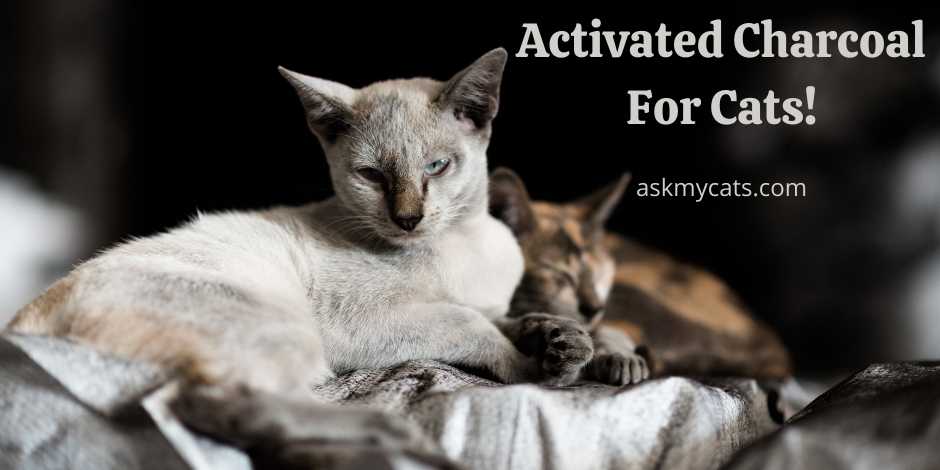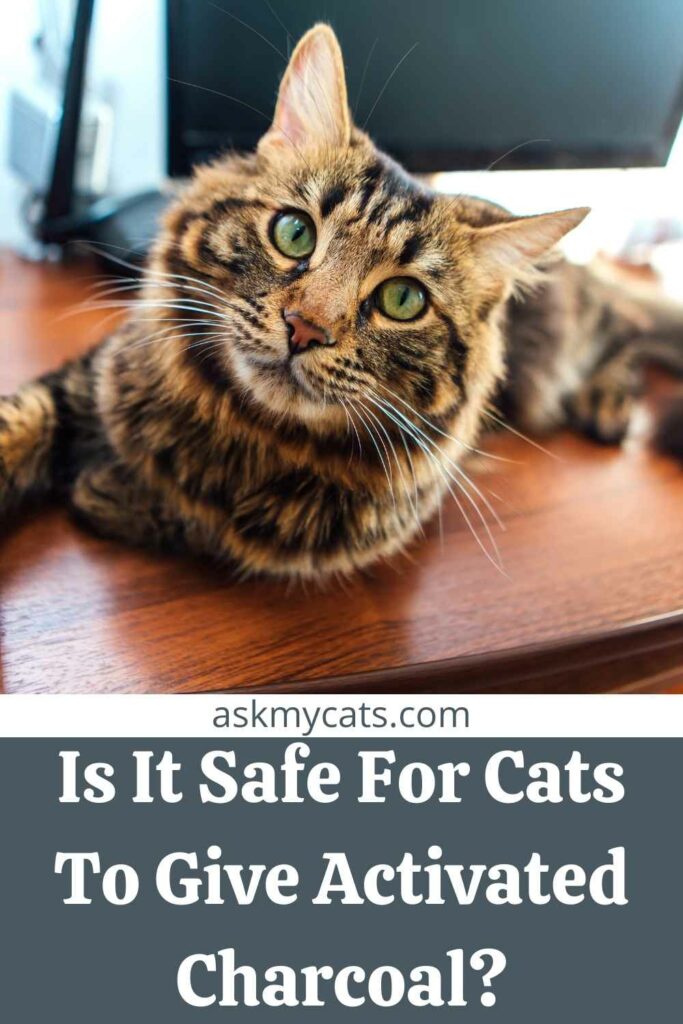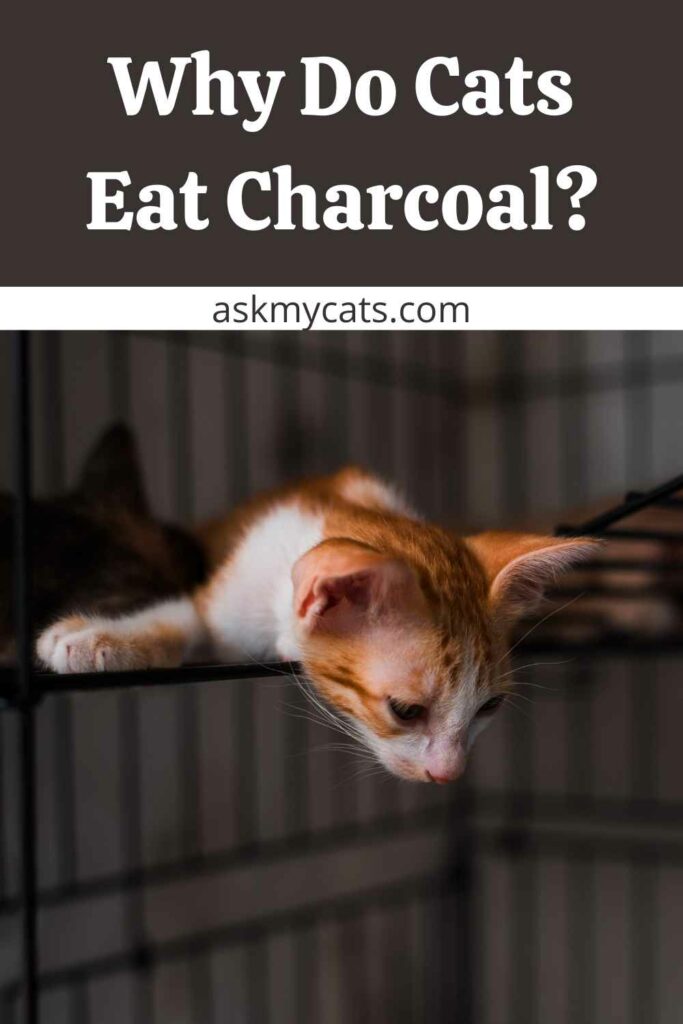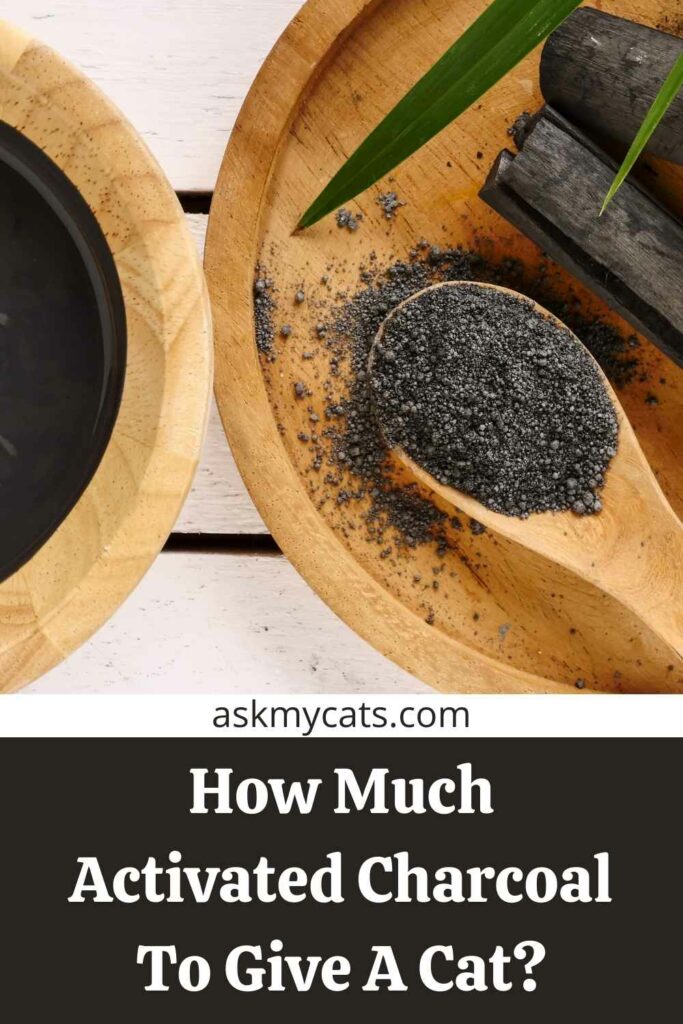Activated charcoal is a liquid that is taken by mouth to inhibit or reduce the absorption of toxins from the stomach. It is not an antidote in the traditional sense; instead, it binds to particular toxins, preventing them from passing through the gut wall and into the circulation. This reduces toxin absorption into the circulation, resulting in less organ damage.
Activated charcoal is a safe and efficient therapy for numerous poisons in cats when administered as part of a protocol. But only use it under the supervision of a veterinarian!
Activated charcoal is a finely powdered charcoal product that may be purchased over the counter or by prescription. To be effective, activated charcoal must be administered as soon as possible after the poison has been consumed.


Give Your Cat the Perfect Day
Get the Free Ebook!
Is It Safe For Cats To Give Activated Charcoal?
Yes, it is safe for cats to have activated charcoal.

When supplied appropriately in reaction to the consumption of toxins, activated charcoal is safe for cats. Make sure your cat’s activated charcoal has been authorised by a veterinarian before using it. Give your cat activated charcoal as soon as possible after they’ve consumed the poison.
When a cat ingests a poison, the first step should be to seek help from a veterinarian. In virtually all situations where the toxicant was recently consumed by the cat, it is preferable to induce vomiting to eliminate it from the stomach. Then activated charcoal is administered to clean up any toxicant that has remained on the stomach lining.
However, the optimal course of action is determined by what the cat ate, therefore expert evaluation is required.
In addition, the veterinarian will determine whether or not the cat is dehydrated. If activated charcoal is administered to very dehydrated cats, the danger of elevated blood salt levels increases. In the latter case, the veterinarian will administer intravenous fluids to the cat.
By mouth, activated charcoal is administered. Because most cats are picky eaters, it’s doubtful that they’ll consume charcoal put into their diet. Instead, it might be syringed slowly into the cat’s mouth, allowing her to swallow each mouthful. If the cat is semi-conscious, however, this should not be done since the liquid charcoal might be inhaled into the lungs.
If this is the case, the veterinarian may insert a gastric tube into the patient’s stomach and provide the medication straight to the stomach. Depending on how much toxicant the cat swallowed, repeat doses may be required every 4 to 8 hours for up to 24 hours.
It’s important to understand that activated charcoal isn’t an antidote, but rather a tool for lowering toxin absorption. Its effectiveness is determined on the type and quantity of poison consumed. Drugs may be ‘recycled’ by the liver in some situations, necessitating ongoing dosing until the drug has been entirely removed from the body.
The ultimate goal of using activated charcoal is to reduce poisoning’s consequences. To this goal, forcing the cat to vomit within two hours after consuming the poison may be necessary.
Intravenous fluids are also beneficial to dehydrated individuals. It is extremely preferable to utilise a specialized antidote whenever one is available.
Can I Give My Kitten Activated Charcoal?
Yes, you can give your kitten activated charcoal.
Why Do Cats Eat Charcoal?
The most prevalent cause is a nutritional deficit, which results in a lack of an essential nutrient in the cat’s diet. This behavioural change might be caused by a primary liver ailment, anaemia, or a problem with the central nervous system (such as a brain injury).

Activated charcoal is relatively harmless, and its administration is not associated to any negative side effects. The most visible impact in a well-hydrated cat is black excrement for a day or two thereafter.
However, if a toxicant enters the cat’s circulation, it may experience negative consequences. Complications might include stomach ulcers, liver failure, or renal damage.
Activated charcoal is quite affordable to acquire, costing as little as $10 at the pharmacy counter. The veterinarian consultation, hospitalisation bills, and nursing fees for frequent administration of the activated charcoal throughout the night, if necessary, are all more expensive.
As a result, uncomplicated instances may be quite affordable to treat, costing $40 to $50.
A complicated poisoning, on the other hand, might result in a cost in the hundreds of dollars if bloods, intravenous fluids, and overnight care are required.
Activated Charcoal For Cat Diarrhoea
You can give your cat activated charcoal for treating diarrhoea.
If a cat is dehydrated, presently has diarrhoea, or the toxin is likely to produce diarrhoea, sorbitol should be avoided. Otherwise, with the initial dose, activated charcoal with sorbitol is usually advised (and once every 24 hours for repeated doses).
Activated charcoal should be handled as a medicine rather as a go-to solution for your pet’s loose faeces. If your pet’s poop isn’t always solid, look into the cause, such as food intolerance, and then remove the offending item from your pet’s diet. Investigating and then medicating is always the best method to ensure your cat or dog’s long-term health.
When you see the major vomiting and diarrhoea tapering down, or the consistency or volume of waste being removed changing, it’s time to provide activated charcoal to avoid dehydration. Any vomiting or diarrhoea should not be permitted to continue for more than a few days.
If the activated charcoal or grass-eating doesn’t alleviate your pet’s symptoms within 12 to 24 hours, you should seek medical treatment to get fluids and electrolytes into his or her body, especially if your pet isn’t eating.
Activated charcoal works effectively in most ordinary instances when you suspect the pathogen is still in the digestive system and can help prevent germs from passing into the circulation. If you’re treating a poison, the treatment should be delivered as soon as possible after the poison has been taken, ideally within a few hours after consumption.
If your pet has persistent diarrhoea or vomiting, or if the consistency of the poo remains loose after you stop administering activated charcoal, you should seek veterinarian care. Your pet may have chronic intestinal inflammation, and you’ll need to figure out what’s causing the digestive distress.
How Can I Get My Cat To Eat Charcoal?
Depending on the condition, it can be taken orally or used topically for cats. It’s available in tablet, powder, or capsule form. The tablet form and powder form are the best two alternatives since they allow you to apply activated charcoal topically, which is very useful if your cat is dealing with a bite or sting.
When delivering it orally, powder and tablets allow you the option of mixing it with water and slowly releasing it into your pet’s mouth using the plastic portion of a syringe, or mixing it into your pet’s food.
Capsules will function, but the digestive system will have to break down the outer shell first to get to the activated charcoal, which will put more strain on the system if it is already weakened. However, if it’s the only option, it’s better than nothing, and you can always stock up on the powder or pills in the future.
Activated Charcoal For Cat Poisoning
Activated charcoal is beneficial for treating cat poisoning.
Because activated charcoal is a “drying” substance, introducing it to a cat’s system that has already lost water due to poor food choices and has then lost important water content due to vomiting and diarrhoea might potentially cause more injury and severe dehydration.
When giving activated charcoal to a cat orally, it’s critical that they drink enough of water to avoid severe dehydration and to help flush out any germs.
Activated Charcoal For Cats With Kidney Diseases
Activated charcoal can be used for cats with kidney diseases.
How Much Activated Charcoal To Give A Cat?
The recommended amount of activated charcoal for cats is 1-3 gm/kg body weight, according to the veterinary advice. As a rough estimate, an adult cat weighing 5kg may require 1/4 to 1/2 teaspoon/tablet.

A 1/8, or half of a ¼ will be good for a 3 kilograms adult cat. Kittens will require less food depending on their weight, but the amount provided should be estimated based on 1/4 teaspoon.
To avoid future hydration concerns, err on the side of caution, especially in kibble-fed cats, and spread out dosage intervals.
It’s best to administer activated charcoal to kittens sooner rather than later since the microbiota in their digestive tracts is still forming, so infections are more likely to enter the bloodstream in the early months than in an adult cat.
You may need to administer a repeat dosage every several hours depending on the severity of the toxin and how often your cat has diarrhoea or vomiting.
If feasible, offer one dosage to observe how your cat reacts, and if time allows, try giving another dose 8, 12, or 24 hours later, and so on. It will ultimately depend on the cat and how soon the symptoms go away, but one or two doses may be sufficient.
Is Bamboo Charcoal Safe For Cats?
Bamboo charcoal is also safe for cats to use.
Frequently Asked Questions
Are charcoal filters safe for cats?
We usually recommend washing the filters before use because some charcoal can escape during the life of the filter. Your pets will not be harmed.
Does activated charcoal work on cats?
If your cat has been exposed to an ingested toxin, activated charcoal can be administered immediately and safely to assist in the expulsion of toxins from the body. It bonds with cells and molecules to aid in the expulsion of toxins from the body.
What are the effects of bamboo charcoal?
When used for a short period of time, activated charcoal is considered safe for most individuals. Constipation and dark stools are two side effects of activated charcoal. Slowing or blocking of the digestive system, regurgitation into the lungs, and dehydration are more significant, although infrequent, adverse effects.
Final Words
Aspiration and vomiting are the most common side effects of activated charcoal therapy. In cats, activated charcoal has also been linked to higher salt levels in the blood.
We would love to hear from you, so please leave a comment and feel free to forward this to anybody you think may enjoy it.
